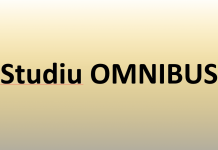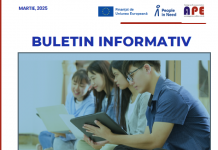The European Union uses positive conditionality—rewarding countries for adopting specific reforms—as a tool to promote open society values. The case of Moldova shows how clearly defined benchmarks and tangible reward enables the EU to push governments to adopt valuable reforms.
According to the European Integration Index, Moldova is one of the most willing reformers in the EUs Eastern neighbourhood. Most recently the countrys parliament adopted an anti-discrimination law after four years of extensive debates, protests and political infighting. Renamed the law on ensuring equality” it bans all forms of discrimination, provides the possibility of affirmative actions, and sets up a mechanism to sanction discriminatory behaviour.
For a long time the government denied the need for legal protection against discrimination, claiming it is not a widespread phenomenon in Moldova. In contrast, a survey by the Soros Foundation-Moldova found that more than two thirds of respondents consider discrimination and marginalization of certain groups a real problem in their society, while one third have been victims of discrimination in the last three years or witnessed discrimination of other people. The study identified people with mental and physical disabilities, those living in poverty, LGBTI, persons living with HIV/AIDS, Roma and women as the most discriminated against groups.
While the general public feels compassion towards certain marginalized groups, it rejects the idea of giving protection to Roma, LGBTI, or people with HIV/AIDS. Only 40% of respondents would accept having a Roma neighbour, colleague or friend. Two thirds of respondents believe that gays and lesbians should have their rights restricted, while 41% consider that people with HIV/AIDS should not be allowed to use public transportation.
Prejudices against these groups make them an easy target for populist politicians. Appeals in favour of the anti-discrimination law from local civil society organizations were ignored, while aggressive lobbying from religious and radical groups explains the governments four year procrastination. The head of the Russian Orthodox Church himself travelled to Chisinau to lobby against the law.
Fortunately, the EUs incentive pushed the government into action. The EU promised visa free access to Moldovans if the government adopts and successfully implements a series of reforms. A special Action Plan was delivered to the Moldovan government in December 2010, which, among other conditions, required the adoption of a comprehensive and effective anti-discrimination law. It took more than a year of intense lobbying by the EU, Council of Europe and UN bodies to persuade Moldovan politicians to adopt the law. The international support empowered local civil society to stand firm on its demand. The government eventually went as far as to engage civil society in drafting the legislation.
Without the EU pressure and promise of reward the Moldovan lawmakers would never have adopted such a progressive law. This case shows that EU conditionality works when there is a tangible reward attached. Now that Moldova has accomplished all the conditions required in the first phase of the Action Plan, the EU should move Moldova to the next phase of the visa liberalisation process. An appeal by the Visa-Free Europe Coalition warns that postponing such a decision could also delay the implementation of the law.
Adoption of the law is not the end of the story. Before Moldovans can travel without visas to the EU, the government has to prove that it implemented the anti-discrimination law effectively. The European Commission will continuously monitor its implementation and produce regular reports. Civil society assessment will help the monitoring process.
A law cannot transform a society overnight. However it is an essential tool that allows victims and their defenders to stand up for equality and seek protection against discrimination. It also sheds light on the problems and stirs debate, which is crucial to build a genuinely tolerant society. The new law is a good start, but theres a long way to go.







